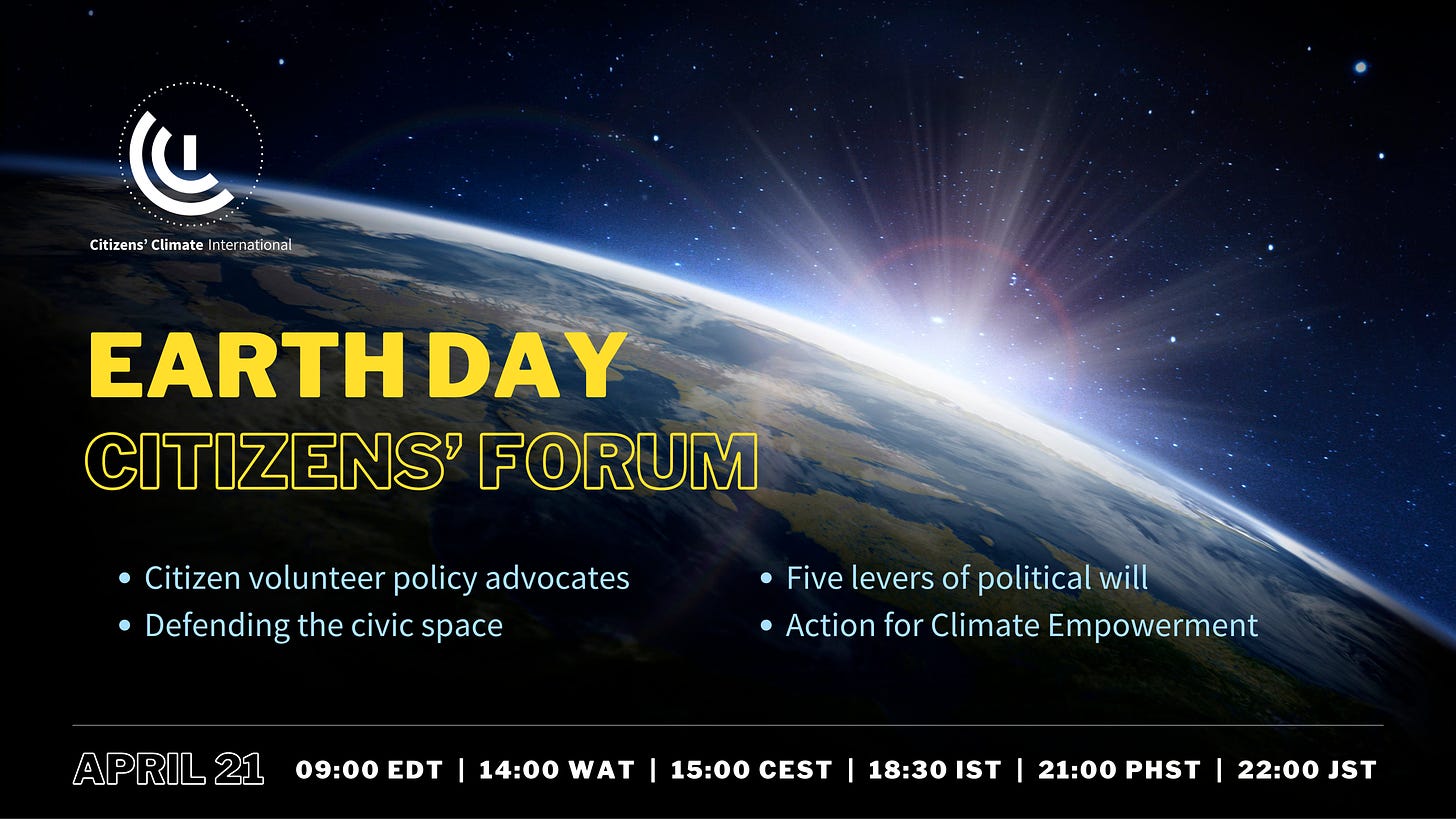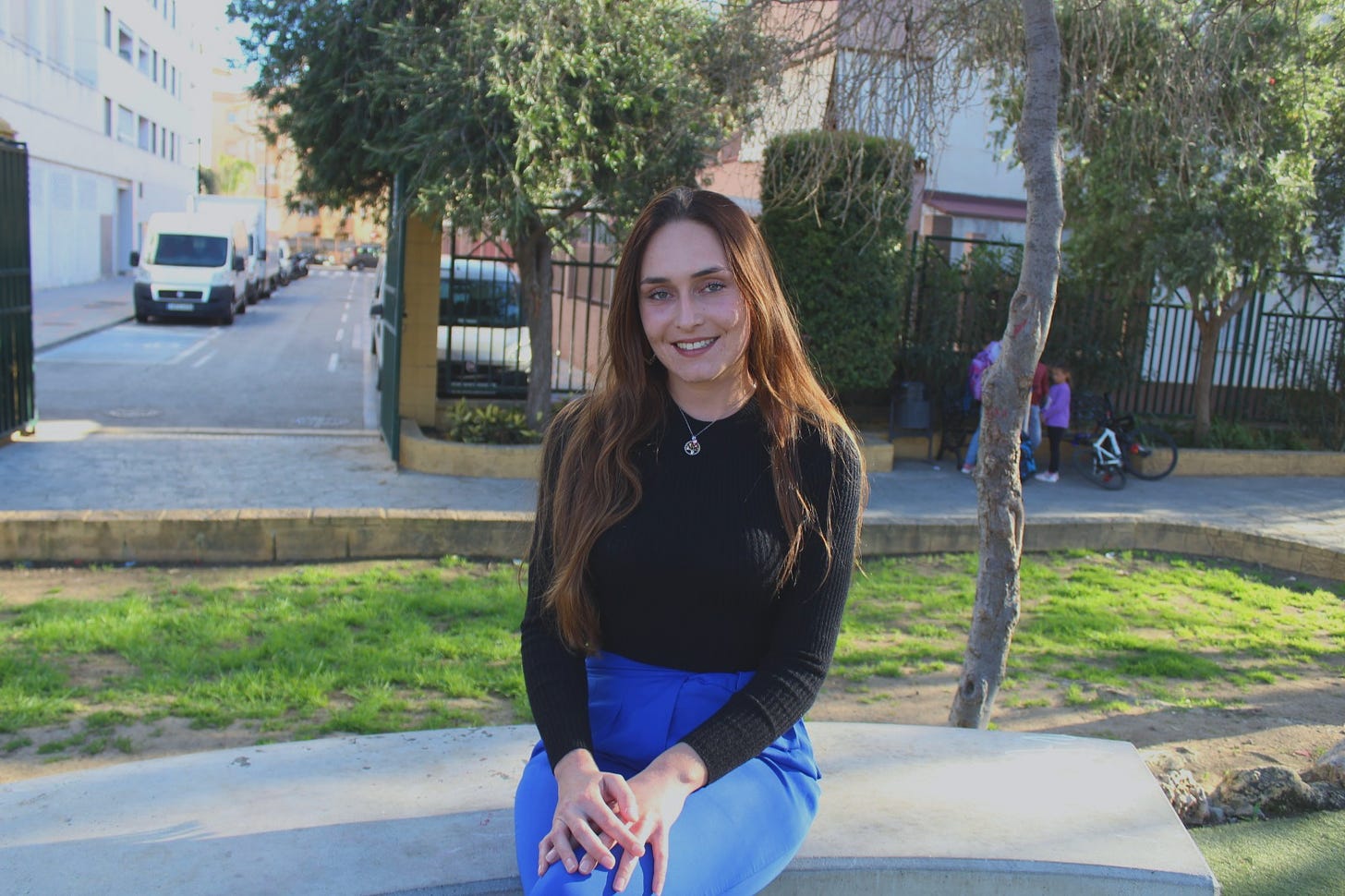The health of Nature shapes our fate
NEWSLETTER, Mar 2022 — 50 years after Stockholm; announcing the 2022 Earth Day Citizens’ Forum; Spotlighting dedicated, collaborative volunteer advocacy; UN forms global crisis response group.
Our fate is linked to the health of nature. The window for climate resilient development is closing. Failure means a world riven by deprivation, displacement, and conflict. As a network of stakeholders across six continents, we recognize the right of all people to a future free from harm. That right is under threat, from a triple planetary crisis of worsening climate disruption, accelerating loss of biodiversity, and pervasive pollution. The COVID pandemic, climate disruption, and conflict all worsen inequality and vulnerability. We must raise ambition, activate civic spaces, and mainstream sustainable finance, to secure a livable future.
50 Years after Stockholm, we must not miss the chance to secure a livable future.
It has been 50 years since the 1972 United Nations Conference on the Human Environment and the Stockholm Declaration. Stockholm made environmental challenges core geopolitical and human rights concerns. In spite of great progress, and vital global agreements to foster collaboration and sustainable development, we are still not working sustainably.

The stakes, at this moment, could not be higher:
According to the World Food Programme, more than 280 million people in 81 countries currently face acute food insecurity or are at high risk, while 45 million are on the brink of famine.
Degradation of ecosystems and loss of biodiversity are expanding and accelerating, even as we need to restore and protect nature to secure food and water supplies, and human health.
Energy systems need to evolve rapidly, everywhere, while we eliminate half of all global heating pollution by 2030, even as we address the supply disruptions and price surges of the moment.
It is projected there will be more plastic than fish in the sea by 2050, and micro plastics are now being found throughout the marine biosphere. Last week we learned microplastics were found in human blood for the first time.
We have a chance to reinvent prosperity, protect the vulnerable, and mobilize the best of humanity. We cannot afford to miss this chance.
Earth Day Citizens’ Forum
The 2nd Earth Day Citizens’ Forum will take place on Thursday, April 21, 2022, one day before Earth Day, to give our local volunteer chapters full freedom to engage in the events and meetings they have planned for Earth Day.
The Forum will highlight ongoing work of Citizens’ Climate volunteers, working across the Five Levers of Political Will. We will examine threats to the civic space, and efforts by civil society advocates to secure new protections and safeguards. And we will explore opportunities for expanding citizen participation in the UNFCCC process.
The Earth Day Citizens’ Forum will provide a background of peer-sharing, focused learning, and global policy-making context for the first CCI Week of Action, June 13-17. The Week of Action will be a global, hybrid event, offering volunteers the opportunity to:
Schedule direct policy discussions with public officials
Spread their message in local media
Organize, if they choose, educational meetings in their communities
Connect with trusted leaders, to build political will locally
Engage in focused trainings to develop their volunteers’ skills
Learn more and register your interest for the Earth Day Citizens’ Forum, here.
Volunteer Spotlight: Tatjana Gojmerac
Citizens’ Climate Europe recently secured a meeting with leadership at the European Commission. The meeting was the result of dedicated and persistent efforts by Tatjana Gojmerac, a very active Citizens’ Climate youth leader in Spain. Tatjana built on efforts by volunteers across Europe, and focused her attention on getting the high-level meeting. It was a great example of how an empowered individual, working with others, can move new ideas into the policy space.
Tatjana joined the CCI Youth Conference on Carbon Pricing in September 2021 and committed to follow up with advocacy toward strong carbon pricing policy. She did an interview for the newspaper Expansión and was interviewed about climate income policy for her local TV network. Since the September conference, she has met with a mayoral team, a regional parliamentarian in Andalucía, a national Congress member, and secured the high-level EU meeting.
The halls of power don’t immediately bend to the wishes of any advocate. What Tatjana’s volunteer work shows us is that patient, persistent, policy-focused engagement builds trust and creates a foundation for wider interest in your preferred solution.
UN Secretary-General forms Global Crisis Response Group on Food, Energy, and Finance
With the invasion of Ukraine disrupting already strained global food supplies, and in light of the mounting threats posed by climate disruption, as reported by IPCC Working Group II, the United Nations Secretary-General Antonio Guterres has convened a Global Crisis Response Group on Food, Energy, and Finance.
As part of Citizens’ Climate International’s Resilience Intelligence Program, we have recently reported on ways to address each of the three systemic challenges, while building resilience for everyone:
Food: Smart food security cooperation needed to stop Putin and avert global humanitarian crisis
Energy: Go green at wartime speed
Finance: Financial integration and inclusion needed to get best results from Glasgow outcomes
We have also examined:
The need for enhanced multilateral cooperation to ensure sustainable development and universal support for human rights;
The ways in which climate emergency increases risks of conflict and destabilization of nation states;
The finding of the Financial Stability Oversight Council that unchecked climate disruption will destabilize the financial system.
Additional Resources
Climate inequality: IMF report linking climate and inequality
Climate resilient development: IPCC WGII February 2022 report
Conflict: Resilience Intel report on climate as threat to international peace and security (links to additional resources)
COVID inequality: Pandemic divergence report from Brookings
Food security: Climate-Hunger Multiplier report
Food security: IPCC Land report, Chapter 5: Food Security
Food security: Smart food security cooperation needed to stop Putin
Displacement: UNHCR report on climate-driven displacement
Mainstreaming sustainable finance: CCI post-COP26 finance brief
Raise ambition: Go green at wartime speed
Vulnerability: Climate Vulnerable Forum reactions to IPCC Impacts report





